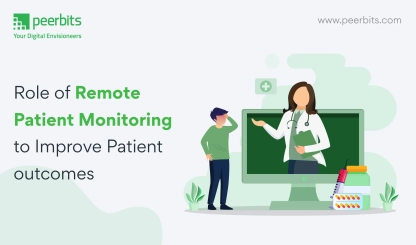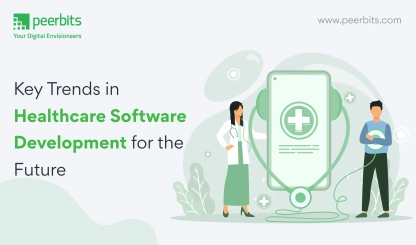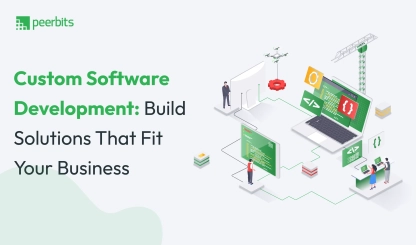Outsourcing mobile app development can be a smart move for businesses looking to reduce costs and access top talent. But it requires careful consideration to make sure that the right partner is chosen. From evaluating technical expertise to assessing cultural fit, there are several key factors that can make or break the success of your project.
The mobile app development market is experiencing significant growth, with a projected market volume of US$781.70 billion by 2029, driven by annual growth rate of 7.84%, according to Statista.
This growth showcases the increasing importance of mobile apps across various industries, making it essential for businesses to choose the right development partner.
If you are interested in developing an app, you may want to outsource mobile app development services. There are numerous benefits you stand to gain from this outsourcing like saving money and other resources, as well as dedicating more of your time to marketing efforts and the pre-launch event.
As much as IT outsourcing come with numerous perks, note that you will also be taking a huge risk. For this reason, you want to make sure that the entire process is done right. Since outsourcing app development puts you on the frontline where you can act as the project manager with the power to oversee all aspects of the process from a distance.
Therefore to keep the horror stories at bay, here are some essential insights you need to know before outsourcing mobile app development to avoid any future mishappenings & make the most out of offshore developers .
Factor 1: Get a clear picture of your desired mobile app
Before starting your mobile app development outsourcing, it’s important to have a clear and detailed understanding of your app idea. A well-defined development project streamlines communication with developers and helps you get accurate cost estimates and timelines.
1. Define the purpose of your app and target audience
Clearly outline what your app aims to achieve. Whether you are creating a service-focused app or a product-oriented one, identifying the objective is critical. For example, a food delivery app will have different requirements compared to a fitness tracking app. Pinpointing the target audience—such as business professionals, students, or specific demographics—will help the development team design a user-friendly experience.
2. List key features and functions
Prepare a list of functionalities that your app needs. Features like push notifications, payment gateways, GPS tracking, or chat support should be clearly mentioned.
If you are not sure, prioritize the "must-have" features and then consider additional "nice-to-have" options that can improve the app’s usability.
3. Decide between a full-featured app or MVP
Depending on the cost of outsourcing app development, you may need to choose between a fully-featured app or a minimum viable product (MVP). An MVP focuses on core functionalities, offering a quicker and cost-effective way to test the app in the market.
On the other hand, a fully-featured app caters to a wider audience with comprehensive capabilities.
4. Specify the type of services required
Determine whether you need mobile app development outsourcing services for the entire project or specific tasks like UX/UI design, backend development, or app monetization strategies. A clear service scope will help you find developers with the right expertise.
5. Select the preferred platform
Decide whether you want to develop your app for Android, iOS, or both. You may also consider cross-platform development for wider reach. If you feel you are not sure of it, consult your outsourcing team to determine the best fit based on your target audience and budget.
6. Highlight any additional requirements
If you need extra products like a promotional website, admin panel, or integration with other tools, mention them upfront. These elements can significantly impact the project timeline and cost.
7. Define timelines and budgets
Set realistic expectations for project delivery. Be clear about your budget as well. Many businesses that outsource app development prioritize affordability while ensuring quality.
Providing these details gives developers a clear roadmap to follow, making it easier for them to assess their capacity to handle the project. This clarity also helps you receive precise quotations for outsource mobile app development services, saving time and preventing misunderstandings later in the process.
With your app’s vision now solidified, the next step is to explore the cost of outsourcing app development. Understanding budget factors and how they influence the quality of your app is essential for making informed decisions. Let’s get into this aspect in the upcoming section.
Factor 2: Breaking down the cost of outsourcing app development
The mobile app development cost parameters vary depending on various factors. Expect to spend between $25.00 and $100.00 per hour when you outsource app development, depending on the location of the development team. For a simple app, costs may fall below $50.00 per hour, while a complex application with numerous features could cost up to $200.00 per hour. Understanding these costs is just the beginning. Let’s explore the key factors that can influence your budget and help you make informed decisions.

1. Planning your budget
Setting a clear budget is important before beginning your search for a developer. Consider the complexity of the app, the features you want, and the platform for deployment.
Be prepared for hidden costs such as app maintenance, updates, and additional features that may arise after launch. Proper budget planning ensures you’re financially equipped for every stage of the development process.
To optimize your budget further, it’s essential to understand how location affects development costs.
2. Cost by team location
The location of the development team plays a significant role in determining the cost of outsourcing app development. Developers from regions like North America or Western Europe charge higher rates, ranging from $100 to $200 per hour.
On the other hand, outsourcing to countries in Asia, Eastern Europe, or South America often costs between $25 and $75 per hour, offering competitive pricing without compromising quality. Choose a location that balances cost and expertise effectively.
Once you have clarity on costs and budgets, the next step is finding the right developer for your project.
Factor 3: Find a compatible developer
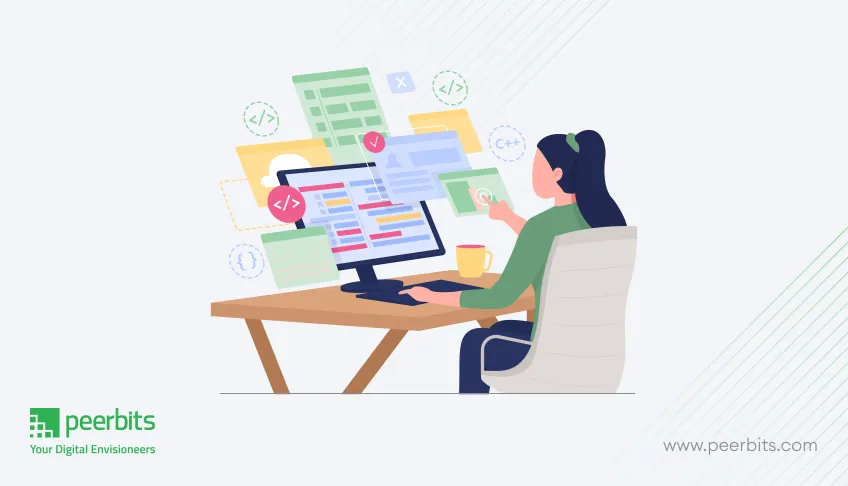
After defining your app's requirements and budget, the next step is to look for a reliable developer. Take your time to evaluate multiple options and shortlist companies or freelancers that meet your business needs.
Look for a mobile app development company or expert who line up with your business goals, works well within your culture, and matches your preferred working style. Verify that the developer will be directly handling your project rather than outsourcing it to another team.
Choosing the right developer requires thorough research. Portfolios and client testimonials can be particularly valuable in this process.
1. Portfolio and communicate with previous clients
A developer’s portfolio gives valuable insight into their experience and expertise. Review their past projects to see if they have worked on similar apps.
Reach out to their previous clients for honest feedback on their professionalism, communication, and quality of work. A strong portfolio with positive client testimonials can help you make an informed decision.
Once you’ve evaluated potential developers, the next step is to agree on a payment structure that works for both parties.
2. Choose a payment option
When working with developers, selecting a payment model that suits both parties is essential. Common options include:
- Pay-as-you-go: Payment is made in installments based on completed milestones.
- Fixed pricing: A total cost is agreed upon at the start of the project.
- Hourly rate: Payments are based on the number of hours worked.
A clear agreement on payment terms ensures transparency and avoids potential conflicts during the project.
With a compatible developer in place and payment details sorted, you’re ready to move forward confidently.
Factor 4: Spot the signs of exceptional developers
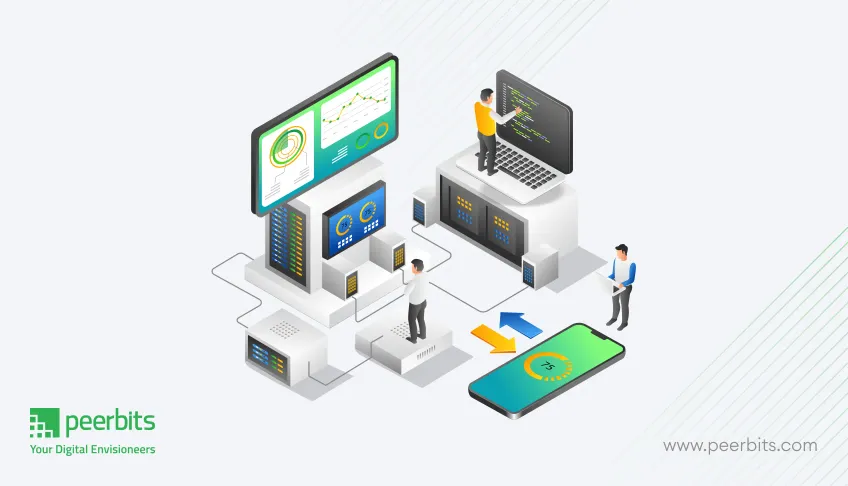
Before making the final decision on the developer to hire, there are a few signs to look out for so as to be confident that you are working with an excellent service provider.
Before finalizing your decision, look for signs that indicate you’re working with a capable and professional developer:
- Interest in the project: Developers who ask relevant questions and offer suggestions often bring valuable insights into the table.
- Responsiveness: Quick replies and consistent communication show their dedication.
- Fair pricing: A trustworthy developer provides detailed cost breakdowns and avoids overcharging.
- Willingness to sign NDAs: This ensures project confidentiality.
You can proceed with your project confidently by ensuring your developer meets these standards.
Factor 5: Define key project milestones
Once you and your developer are lined up, outline the project milestones. Set clear timelines for each phase, such as app design, development, testing, and launch.
Regularly reviewing milestones lets you monitor progress, test features, and make adjustments if needed. Discuss payment terms at this stage, whether opting for a deposit system or a pay-as-you-go model.
Milestones help maintain project direction, but testing is where the real fine-tuning happens.
Factor 6: Test several versions of the app
Before you register the application to an app store, remember that you must test several versions. Do not dismiss the app if there is something wrong with it as some problems will likely crop up. Just let the developer know so that they fix the issue right away.
The professional should be willing to work on it until you have the perfect version that you can release to the market.
The decision to outsource mobile app development may not be an easy one. It is possible to find an admirable developer who will bring your dreams to life with minimal effort on your end.
Just take your time and do due diligence to identify the ideal candidate for the job to make sure that everything falls into place without too many complications.
Testing multiple versions of your app ensures a polished final product ready for market success. Next, let’s get into the key differences between outsourcing and in-house development to help you make an informed decision.
Read more: How to know outsourcing development is good for your business?
Difference between outsourcing and in-house development
| Aspect | Outsourcing mobile app development | In-house mobile app development |
|---|---|---|
| Cost | More cost-effective, especially for startups and small businesses. No need for long-term commitments. | Higher cost due to salaries, benefits, and infrastructure investment. |
| Expertise | Access to global talent with specialized skills and experience. | Limited to the expertise of your internal team. |
| Flexibility | Highly scalable; you can adjust the team size or services as needed. | Requires hiring and training new team members for scalability. |
| Time to market | Faster development with an experienced team ready to start. | Longer timelines due to team setup and learning curves. |
| Infrastructure | No need to invest in tools, software, or office space. | Requires investment in development tools and workspaces. |
| Control | Lesser control over daily activities but offers flexibility in project management. | Full control over the team and project execution. |
Why choose Peerbits for outsource mobile app development?
Peerbits stands out as a trusted partner for outsourcing mobile app development. With a proven track record of delivering high-quality applications to diverse business needs, our team ensures every project receives expert attention.
- Experienced professionals: Our developers bring extensive experience in creating custom mobile apps that align with your goals and target audience.
- Transparent processes: We believe in clear communication, providing regular updates to keep you informed at every stage of development.
- Cost-effective solutions: Whether you're a startup or an enterprise, our pricing models are designed to suit various budgets without compromising quality.
- Global client base: Businesses across industries trust Peerbits for mobile app development outsourcing services that deliver measurable results.
- Post-launch support: Beyond development, our team offers continuous maintenance and support to ensure your app remains functional and up-to-date.
Choosing Peerbits means collaborating with a team dedicated to turning your vision into reality while maintaining quality, efficiency, and affordability. Let us help you build a mobile app that boosts your business to the next level.
Conclusion
Outsourcing mobile app development offers businesses an effective way to reduce costs while tapping into global expertise. Working with skilled developers from various regions provides access to specialized knowledge and innovative solutions without the overhead of in-house teams.
Understanding key factors such as budget, developer skills, and communication processes can help help prevent potential challenges related to outsourcing.
Whether you’re a startup launching an MVP or an established company building a feature-rich app, outsourcing provides the flexibility to scale and deliver results on time and within budget.
The ability to work with top-tier talent globally while keeping costs low makes outsourcing a smart choice for any mobile app project.

FAQ's
Choose a provider with a strong portfolio, positive client reviews, and expertise in your industry. Regular updates and milestone reviews also help maintain quality.
Costs depend on app complexity, required features, developer location, and the expertise of the team you hire.
Yes, when you work with reputable providers who use secure practices and sign NDAs to protect your data.
Yes, outsourcing allows flexibility. You can hire experts for specific tasks like UI/UX design, backend development, or testing.
Use project management tools, schedule regular updates, and ensure clear documentation of requirements and goals.

